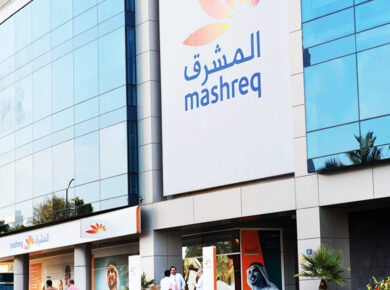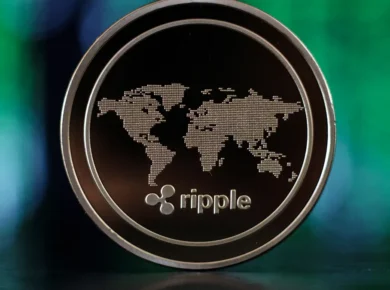Islamic Finance in the UAE: A Growing Industry Rooted in Tradition
Islamic finance has become a rapidly growing industry worldwide and the UAE is no exception. The UAE is recognized as one of the most developed and mature Islamic finance markets globally, with a well-established regulatory framework and a strong infrastructure to support the industry.
Islamic finance is a financial system that is compliant with the principles of Islamic law or shariah. It operates on the basis of risk-sharing, where profits and losses are shared between parties, and prohibits interest-based transactions. Islamic finance has become increasingly popular in recent years, not just among Muslim investors, but also among non-Muslims who appreciate the ethical and transparent nature of the industry.
The UAE has been at the forefront of the Islamic finance industry, with Dubai and Abu Dhabi emerging as key hubs for the industry. The UAE Central Bank has played a key role in the development of the industry, providing regulatory guidance and support to ensure compliance with shariah principles.
One of the key pillars of Islamic finance is the concept of riba or interest, which is prohibited in Islam. Instead, Islamic finance is based on the principles of profit and loss sharing, where the risks and rewards of investment are shared between the investor and the entrepreneur. This concept is reflected in various financial products and services offered by Islamic financial institutions, such as Murabaha, Musharaka, and Ijarah.
Murabaha is a cost-plus financing arrangement, where the bank purchases an asset and sells it to the customer at a marked-up price, with payment deferred over an agreed period. This is a commonly used product in the UAE for financing large assets such as property or vehicles.
Musharaka is a partnership or joint venture agreement between two or more parties, where they share the profits and losses of the venture. This concept is commonly used in Islamic banking for project financing, where the bank and the customer partner together to finance a project.
Ijarah is a leasing arrangement, where the bank leases an asset to the customer for an agreed period, with an option to purchase at the end of the lease term. This product is commonly used in the UAE for financing real estate and equipment.
In addition to these products, Islamic finance also offers services such as Takaful, which is an Islamic alternative to insurance, and Sukuk, which are Islamic bonds.
Takaful is a form of cooperative insurance, where members contribute to a pool of funds to cover potential losses. The funds are invested in shariah-compliant investments and any profits generated are shared among the members. This concept is gaining popularity in the UAE as an ethical and transparent alternative to traditional insurance.
Sukuk are Islamic bonds, where the investor receives a return on their investment through the profits generated by the underlying asset. This is a popular product in the UAE, with the government and various corporations issuing sukuk to raise funds for various projects.
The UAE has also developed a strong regulatory framework to ensure the compliance of Islamic financial institutions with shariah principles. The Shariah Supervisory Board, established by the Central Bank of the UAE, provides guidance and oversight to ensure the shariah compliance of financial products and services.
In addition, the Dubai International Financial Centre (DIFC) has established a dedicated authority, the DIFC Authority for Islamic Finance, to oversee and regulate Islamic finance activities in the DIFC. The DIFC has also launched a number of initiatives to support the growth and development of the Islamic finance industry, including the establishment of an Islamic finance task force and the launch of the DIFC Islamic Finance Knowledge Series.
The growth of the Islamic finance industry in the UAE has not been without its challenges, however. One of the key challenges facing the industry is the shortage of qualified and experienced shariah scholars to oversee the development of new products and services.






Bdkvqz
ivermectin for humans for sale – ivermectin 12 mg pills order carbamazepine 400mg
January 1, 2025Bpjvyo
buy cheap accutane – zyvox 600mg price linezolid 600mg tablet
January 12, 2025Nafspj
amoxicillin over the counter – ipratropium 100 mcg generic buy ipratropium generic
January 12, 2025Ljryla
azithromycin 500mg uk – zithromax 250mg drug buy bystolic generic
January 25, 2025Iqgsio
buy omnacortil 20mg for sale – cost prednisolone 40mg progesterone us
January 28, 2025Uqetei
gabapentin 100mg pill – order anafranil 50mg online cheap order generic itraconazole 100 mg
February 6, 2025Wtubok
lasix 40mg ca – buy generic nootropil over the counter order betamethasone 20 gm without prescription
February 7, 2025Dpypla
monodox for sale online – buy albuterol 4mg generic purchase glipizide without prescription
February 12, 2025Tetzpo
buy generic augmentin online – cymbalta usa brand duloxetine
February 13, 2025Tubqrm
order augmentin without prescription – buy duloxetine pills order cymbalta sale
February 20, 2025Cgfskj
rybelsus 14mg price – semaglutide 14mg cheap order cyproheptadine 4mg pill
February 22, 2025Jkftzo
sildenafil 100mg without prescription – cialis overnight delivery tadalafil 5mg pills
March 1, 2025Qdtopr
order cialis 10mg without prescription – cialis over the counter sildenafil citrate 50 mg
March 1, 2025Wrweqb
how to get cenforce without a prescription – purchase metformin pills buy glycomet pills
March 9, 2025Yiqwvu
atorvastatin 10mg cost – norvasc 5mg generic buy zestril 5mg sale
March 12, 2025Psncay
omeprazole 10mg cheap – tenormin 50mg generic atenolol 100mg canada
March 19, 2025Pguxwr
methylprednisolone tablet – aristocort uk buy aristocort without a prescription
March 25, 2025Sghkox
desloratadine uk – buy priligy tablets buy priligy pills
March 26, 2025Htmsua
order cytotec for sale – cytotec brand order diltiazem for sale
March 29, 2025Aqqvty
oral zovirax 800mg – where can i buy rosuvastatin rosuvastatin 10mg sale
April 4, 2025Hwyhfr
domperidone cost – cost flexeril cheap flexeril
April 5, 2025Sjfhak
purchase domperidone pills – buy motilium online cheap cyclobenzaprine pills
April 13, 2025Xjsmka
buy inderal 10mg pills – buy methotrexate 2.5mg online cheap buy methotrexate 5mg generic
April 14, 2025Efrbub
buy warfarin 5mg generic – buy losartan online buy generic losartan
April 18, 2025Kymkta
esomeprazole 40mg uk – esomeprazole pills sumatriptan 25mg generic
April 21, 2025Eavylw
levofloxacin 250mg pill – order zantac 300mg online cheap ranitidine order online
April 21, 2025Dzsoru
order mobic 7.5mg online cheap – mobic over the counter buy flomax sale
April 28, 2025Fxumsp
purchase ondansetron generic – order zofran for sale order generic simvastatin 20mg
May 15, 2025